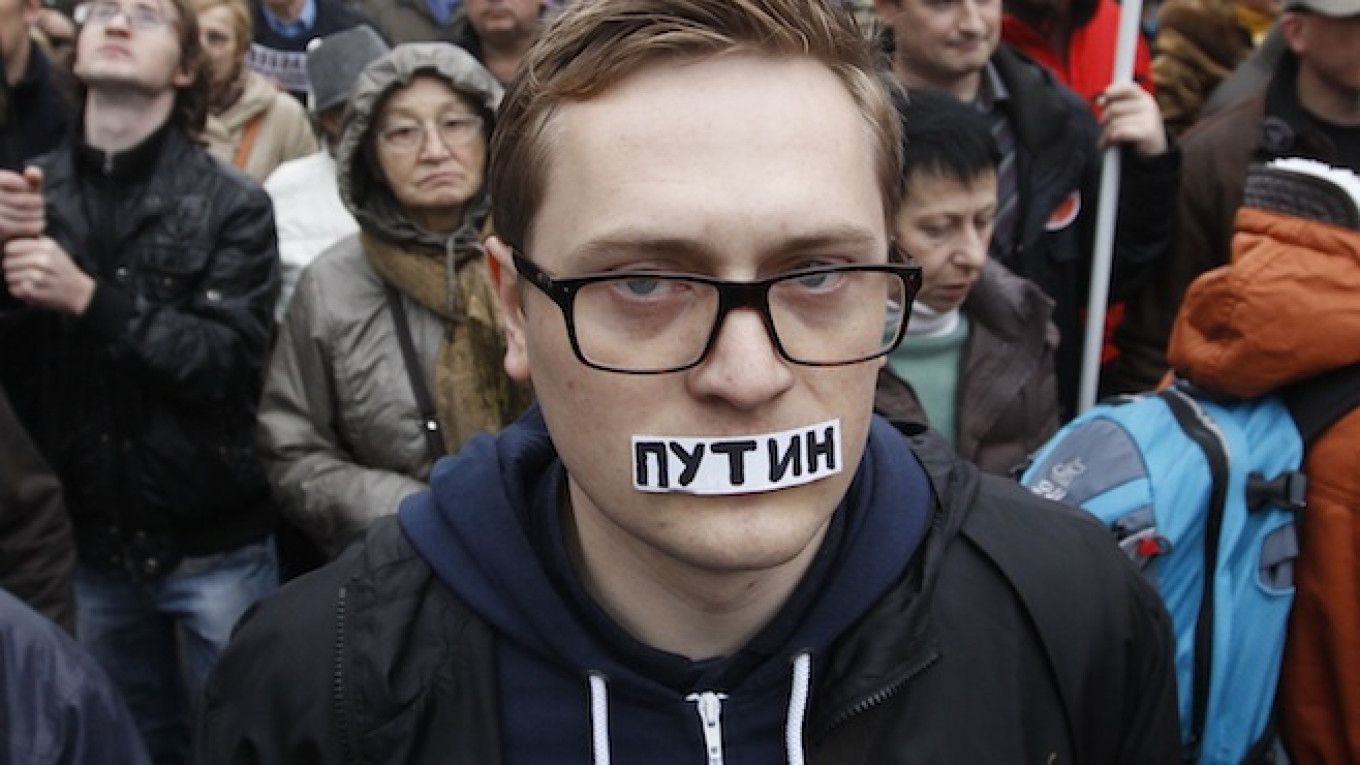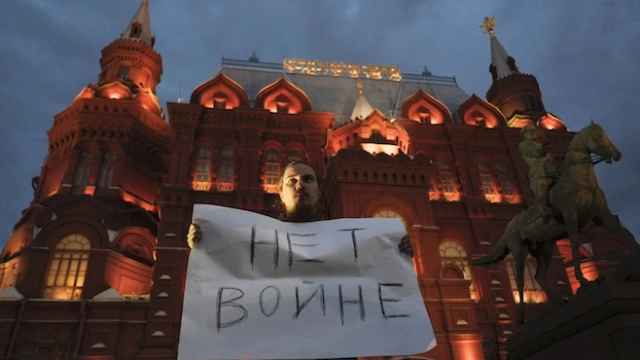The number of Russians who see potential for political protests to break out in their country has more than doubled in the past five months, a new survey showed Friday, though the majority would choose not to participate in them.
The survey, published Friday by state-run pollster VTsIOM, showed that 27 percent of Russians could envisage political protests taking place in their country, compared to just 14 percent in September.
At the same time, 77 percent of Russians say they would choose not to participate in any political demonstrations, citing a lack of information, a priority for personal concerns over public issues, fear of the use of force by police, and repercussions in the workplace as their main deterrents.
Ordinary Russians have been left feeling the pinch in recent months, with Western sanctions against Moscow and a global drop in the price of oil hitting Russia's economy especially hard.
In a gloomy sign of things to come, the IMF on Tuesday predicted the Russian economy will shrink by 3.5 percent this year, lowering its previous forecast of zero growth. But despite being faced with increasing food prices and stagnating pay packets, Russians do not necessarily see political protests as the best way to achieve change.
VTsIOM's survey showed Friday that there has been a distinct shift in people's attitudes to political protests from January 2012, a month after thousands of people gathered on Moscow's Bolotnaya Square to express their discontent with the Russian political elite.
At that time, 36 percent of Russians said in a similar poll that political protests were a viable way to achieve change. That number has now dropped to 23 percent, the VTsIOM survey showed Friday.
Now, almost a third of Russians say political protests are not a desirable way to solve the country's problems and will only lead to more upheaval, up from 22 percent in January 2012.
One of the main reasons for the change is the fallout from the so-called Euromaidan protests when thousands flocked to central Kiev's Independence Square to protest the regime of Ukraine's former president Viktor Yanukovych, the Vedomosti business daily cited VTsIOM head Valery Fedorov as saying Friday.
Since Yanukovych was ousted in February, Ukraine has been thrown into internal disarray with more than 5,000 people killed in fighting between pro-Russian separatists and government forces in the east of the country over the past 10 months, the United Nations said Friday.
Contact the author at [email protected]
A Message from The Moscow Times:
Dear readers,
We are facing unprecedented challenges. Russia's Prosecutor General's Office has designated The Moscow Times as an "undesirable" organization, criminalizing our work and putting our staff at risk of prosecution. This follows our earlier unjust labeling as a "foreign agent."
These actions are direct attempts to silence independent journalism in Russia. The authorities claim our work "discredits the decisions of the Russian leadership." We see things differently: we strive to provide accurate, unbiased reporting on Russia.
We, the journalists of The Moscow Times, refuse to be silenced. But to continue our work, we need your help.
Your support, no matter how small, makes a world of difference. If you can, please support us monthly starting from just $2. It's quick to set up, and every contribution makes a significant impact.
By supporting The Moscow Times, you're defending open, independent journalism in the face of repression. Thank you for standing with us.
Remind me later.






